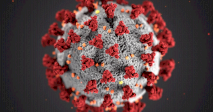What yields a new instance of the abstract data type?
strut()
bin()
create()
data()
What tests whether two instances' states are equivalent in some sense?
compare(s, t)
data(s,t)
equal(s,t)
invoke(s,t)
What computes some standard hash function from the instance's state?
hash(f)
print(f)
print(s)
hash(s)
Which abstract data type produces a human-readable representation of the instance's state?
print(f) or show(f)
print(s) or show(s)
print(p) or show(p)
print(v) or show(v)
What prepares newly created instance "s" for further operations?
hash(s)
print(s)
initialize(s)
strut(s)
In abstract data type Which resets it to some further operations?
“data #”
“initial #”
“data cont”
“initial state”
Which puts "s" in a position equal to the position of "t"?
copy(s, t)
paste(s, t)
cut(s, t)
# copy(s, t)
What can reclaim the memory and other resources used by s for abstract data type?
print(s) or show(s)
free(s) or destroy(s)
ctrl $
compare(s, t)
How does fetch function in abstract data type?
S →X
X →V
V → S
V → X
Which abstract data type procedure with void return type stores the value x in the location V?
data(V, x)
void(V, x)
store(V, x)
hash(V, x)
Quiz populaires
Une tendance sur HowToPronounce
- harmonie [fr]
- Olympique Lyonnais [fr]
- Clara Luciani [fr]
- Amiens [fr]
- fille [fr]
- Saskatoon [fr]
- lyoN [fr]
- Romain Buros [fr]
- Celine Dion [fr]
- Victor Wembanyama [fr]
- Ukraine [fr]
- Polene [fr]
- Mvogo [fr]
- Laura Laune [fr]
- Enfant riches deprimes [fr]







